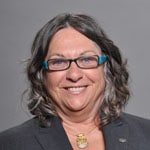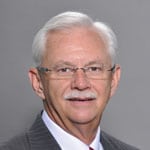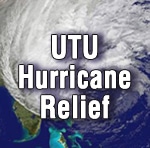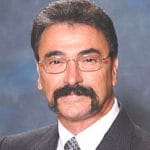
There are two levels of coverage under the plan. Your level of coverage is determined each time you receive care and whether you use an in-network provider or an out-of-network provider. Your out-of-pocket costs under both levels of coverage may include office visit copayments, deductibles, and coinsurance whether you are using services under the Managed Medical Care Program (MMCP), the Comprehensive Health Care Benefit (CHCB) or the Mental Health and Substance Abuse Care Benefit (MHSA).
MMCP and MHSA benefits
• In-network: This level of benefit will apply when you use a physician, specialist, laboratory or other provider who is a member of your plan administrator’s network. When you use in-network providers, your out-of-pocket expenses, deductibles, and coinsurance will be lower than if you use out-of-network providers. Remember, there is no penalty for seeking treatment from a specialist without a referral, providing you with quicker, easier access to health care.
• Out-of-network: This level of benefit will apply when you use a physician, specialist, laboratory or other provider who is not a member of your plan administrator’s network. The plan provides coverage if you use an out-of-network provider, but your out-of-pocket expenses, deductibles, and coinsurance will be higher than if you use an in-network provider. In addition, you will be responsible for any amounts in excess of the covered charges. Covered charges are those charges determined to be usual, customary and reasonable for a particular service in a particular ZIP code area. Additionally, out-of-network providers may require you to pay for services at the time of service which means you will have to file your claim with the plan in order to be reimbursed.
CHCB benefit
Under CHCB, the plan pays a percentage of eligible expenses for covered health services. You will pay lower deductibles and out-of-pocket expenses if you use preferred providers, who are health care providers the plan has special arrangements with who agree to discount their charges. By using a provider where a special discount arrangement exists, the amount of the eligible expense that is your responsibility will generally be less than if non-preferred provider is used because the eligible expense will not be subject to a usual, customary and reasonable charge determination for a particular service in a particular ZIP code area. The covered charge will be based on the discounted charge, after your calendar year deductible is satisfied, leaving you with a lower out-of-pocket expense. Your medical ID card shows if you are entitled to these discounts. If you are, you must make sure the provider sees your ID card and knows that you are covered under one of these discount programs.
How to locate in-network providers
Locating in-network providers online for your medical health care needs is easy. Simply follow the instructions outlined below for the plan administrator of your health benefits.
MMCP and CHCB benefits
Plan administrator: Aetna
Customer service: (800) 842-4044 (Railroad Employees National Health & Welfare Plan); (888) 332-8742 (National Railway Carriers / United Transportation Union Health & Welfare Plan)
► Go to www.aetna.com
► Click on “Find a Doctor”
► Under “Search by Location”, fill in required items
► Click on “Search”
► You may also search by entering the Provider or Facility name
Plan Administrator: Highmark BCBS
Customer service: (866) 267-3320
► Go to www.highmarkbcbs.com
► Under “Find Providers” click on “Find a Doctor, Hospital or Other Medical Provider”
► Under “I Want to Find A” complete all of the required fields
► To select a plan: if MMCP benefits, select “BCBS PPO”; if CHCB benefits, select “BCBS Traditional”
► Click on “Submit”
Plan Administrator: UnitedHealthcare
Customer service: (800) 842-9905 (Railroad Employees National Health & Welfare Plan); (888) 445-4379 (National Railway Carriers / United Transportation Union Health & Welfare Plan)
► Go to www.myuhc.com
► Click on “Find Physician, Laboratory, or Facility”
► If prompted to select plan, select “UnitedHealthcare Choice Plus”
► Under “Physician Specialties,” “Facilities” or “Conditions,” select the choices that apply
► You also may enter the “Name, Facility, Specialty or Condition” and/or ZIP code
MHSA benefit
Plan Administrator: United Behavioral Health
Customer service: (866) 850-6212
► Go to www.liveandworkwell.com and login or register under the heading “Members: Login or Register”
► If you prefer to login anonymously, under the heading “Members: Access Anonymously” enter the access
code “railroad”
► Under the heading “Member Services” (top right-hand side of site), click on “Search for clinician”
► In step 1, under heading “Search for mental health clinicians near you,” click on “Click here to use our free
behavioral health clinician search tool”
► Follow the instructions of the Clinician Search tool to search for a facility or clinician
Note: Provider information, while updated regularly, changes frequently. Always verify directly with your providers, prior to scheduling your appointment or receiving services, that they are still a participating member of your plan administrator’s network.
Discuss in-network services with your doctor
It’s important that your in-network doctor always refers you to in-network providers should you be in need of other medical services, like laboratory work or a referral to a specialist.
► At each visit, ask your doctor to use in-network providers for any medical services you might require from other providers.
► For example, you have the right to ask your doctor to send your laboratory work to an in-network laboratory, thereby allowing you to take a more active role in containing your health care costs.
► If your doctor refers you to another provider, call the number on the back of your member ID card to confirm the provider’s participation in your plan administrator’s network.
If you have any questions or need assistance in locating an in-network provider, or you do not have online capability, please call the phone number located on the back of your member ID card for assistance.

 By Bonnie Morr
By Bonnie Morr By UTU International President Mike Futhey –
By UTU International President Mike Futhey –  For rail workers furloughed as a result of Hurricane Sandy, the Railroad Retirement Board (RRB) advises those victims may qualify for railroad unemployment benefits.
For rail workers furloughed as a result of Hurricane Sandy, the Railroad Retirement Board (RRB) advises those victims may qualify for railroad unemployment benefits. In the wake of Hurricane Sandy, which devastated families in the Northeast, we again are reminded we are a nation of one people.
In the wake of Hurricane Sandy, which devastated families in the Northeast, we again are reminded we are a nation of one people.



 By James Stem –
By James Stem –